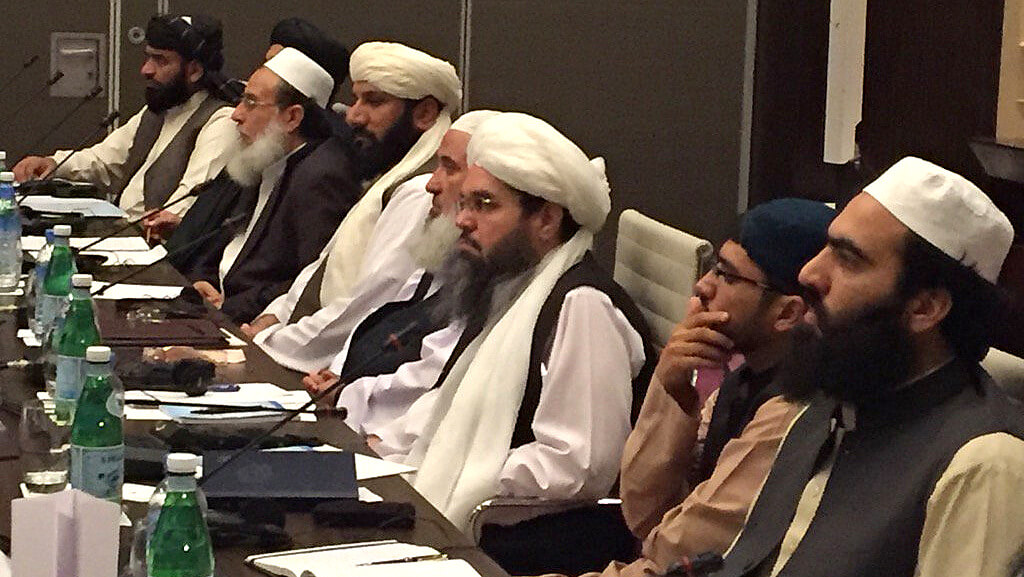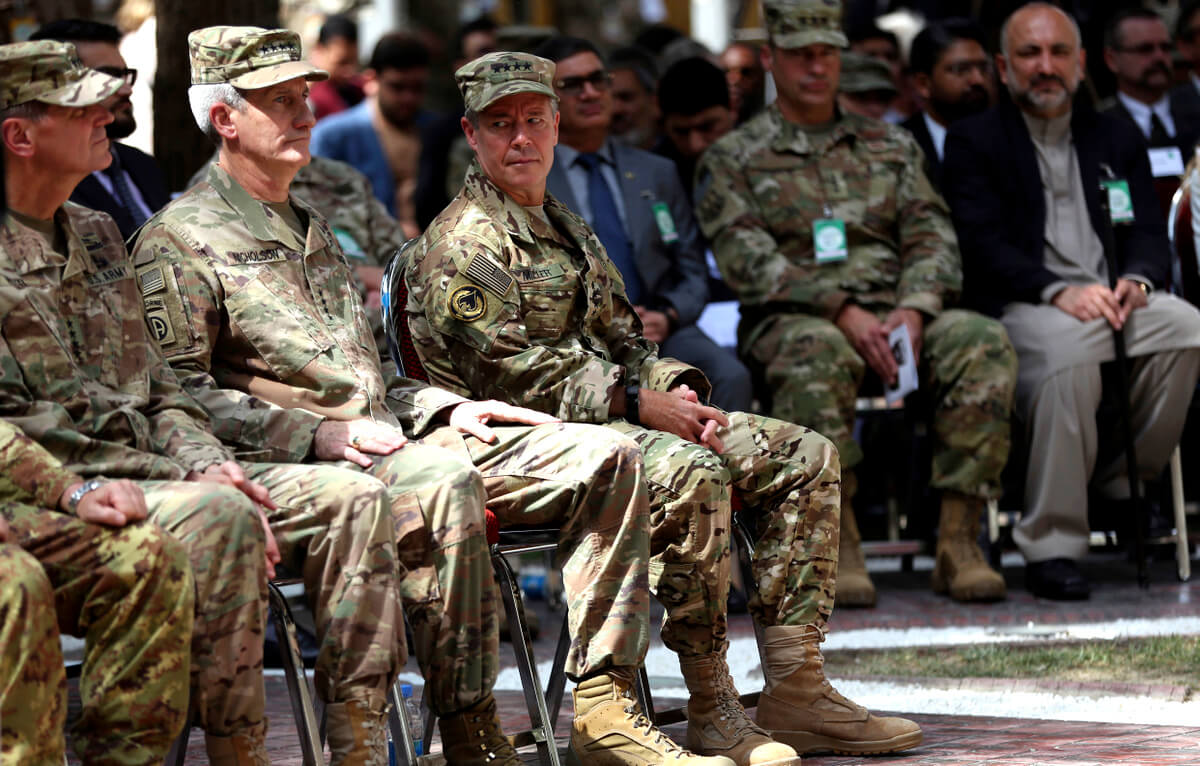KABUL, AFGHANISTAN – As the U.S. marked the 17 years that have passed since September 11, 2001, people across the Muslim world have looked back on the destruction the U.S. has unleashed in the so-called “Global War on Terror” that was launched in the wake of the World Trade Center’s destruction.
In Afghanistan, locals will also soon mark 17 years of destruction and death across the country, where invading Western forces have accomplished little save for the utter shredding of a country’s social fabric, the erection of a tottering, unstable government, and a swollen price tag for a war that now costs $45 billion per year and is the longest war in U.S. history.
The conflict was launched to retaliate against Al Qaeda, which was blamed for plotting the 9/11 attacks from its bases in Afghanistan while under the protection of the former Taliban government.
The Taliban, who have waged a robust insurgency against occupying forces since their 2001 ouster, continue to deny any involvement in the attacks on the World Trade Center while also noting that they have no goal beyond the expulsion of foreign troops from Afghanistan.
The U.S. troop presence is now roughly 16,000, according to U.S. congressional officials – nearly double the reported total of 8,400 in the final months of the Obama administration.
In a commentary published Monday, the Taliban (or Islamic Emirate of Afghanistan, as they are officially called) stressed that the U.S. continues to justify its occupation of the country on the basis of outright falsehoods. The group also issued an appeal for peace talks between itself and the U.S.
“Our nation has felt the agony of war and insecurity; therefore it seeks peace not only in our own homeland but the entire world while holding no intentions of harm towards anyone,” the group said.
A new round of talks with the U.S.

Taliban delegates attend the Pugwash meetings in Doha, Qatar. Twitter | Jessica Donati
From 1996 until its 2001 ousting, the largely ethnic Pashto group applied a strict interpretation of theocratic law based on rural, religious-influenced traditionalism. Since then, the group has sought to soften its policies while criticizing past “excesses,” striking a moderate tone embracing Afghan nationalism and rejecting sectarianism.
The group has refused to negotiate with the U.S.-backed Afghan government, which they consider an illegitimate “stooge regime” put in place by foreign occupiers. The U.S., for its part, has abided by the wishes of its allies in the Kabul government, who have insisted on heading the talks.
According to reports, however, the Taliban leadership have been meeting to discuss the potential agenda of talks this month with U.S. officials, as well as who would take part in their delegation, which would be headed by the group’s Qatar-based political representative, Sher Mohammad Abbas Stanekzai.
Speaking to reporters, officials with the group have noted that the meeting would focus on confidence-building measures, including a prisoner swap and transitioning from back-door meetings to formal negotiations. It would be the second since July, according to the Afghans.
The U.S. has refused to confirm or deny the July meeting, at which the Taliban requested the formal recognition of its Qatar political office and the lifting of restrictions on its top leadership.
Taliban officials told Reuters:
This [September] meeting will determine the future talks and we would see if the U.S. is serious and sincere in negotiation … We would hand over a list of prisoners languishing in jails across Afghanistan. If they set free our prisoners then we would meet again for another great cause.”
The “spectacle” of managed defeat

Outgoing U.S. Army Gen. John Nicholson, second from left, listens as incoming U.S. Army Gen. Austin Miller, third from left, looks at him before the change of command ceremony starts at Resolute Support headquarters, in Kabul, Afghanistan, Sept. 2, 2018. Massoud Hossaini | AP
The discussions on peace talks come as grave doubts have been cast on the viability of continuing the war effort in the South Asian country by everyone from President Donald Trump — who allegedly told Senator Rand Paul that the U.S. was “getting the hell out of there” at some undetermined date — to retired U.S. Army Gen. John Nicholson Jr., the top U.S. commander in Afghanistan until the beginning of this month when he was replaced by Lt. Gen. Austin Miller, a former special forces commander.
In an article titled “Spectacle of Fleeing American Generals,” the Taliban noted:
According to American media, General Miller is a highly skilled commander who has already served in Afghanistan and is highly experienced in night raids. Night raids are an Afghan assassination project and tactic, the victims of which are mostly defenseless civilians, even according to the Kabul regime officials.”
Continuing, the group mocked the possibility that the latest commander of the 17-year conflict would somehow manage to turn the corner, as most have claimed in the past:
American media generally aggrandize their generals they introduce, as every new general is more experienced, courageous, skilled and well aware of the situation of Afghanistan as compared to the past one. But the new commander has always proved to be more dastard, inexperienced and unfamiliar with Afghanistan than his antecedent. … Every new general and commander vaunts in the beginning of his job about being able to reign in Afghanistan and crushing Jihadi resistance in a matter of days.”
During his confirmation hearing, however, the former Delta Force captain noted:
The more I stay there, sometimes the more difficult it becomes to understand … I think I recognize what I do not understand at this stage of my career.”
As the U.S. moves toward its goal of reaching a negotiated settlement to the war rather than the outright and total pacification of the stubborn Taliban, it’s become increasingly apparent that Washington must do what it once considered unthinkable – admit that the war can never be won, and finally engage in direct talks with the Taliban to bring the invasion to an inglorious close.
Top Photo | U.S. forces and Afghan commandos are seen in the town of Asad Khil near the site of a U.S. bombing east of Kabul, Afghanistan. Rahmat Gul | AP
Elliott Gabriel is a former staff writer for teleSUR English and a MintPress News contributor based in Quito, Ecuador. He has taken extensive part in advocacy and organizing in the pro-labor, migrant justice and police accountability movements of Southern California and the state’s Central Coast.
The post 17 Ruinous and Fruitless Years After 9/11, US Looks to Face-Saving Peace Talks with Taliban Before Exiting Afghanistan appeared first on MintPress News.
